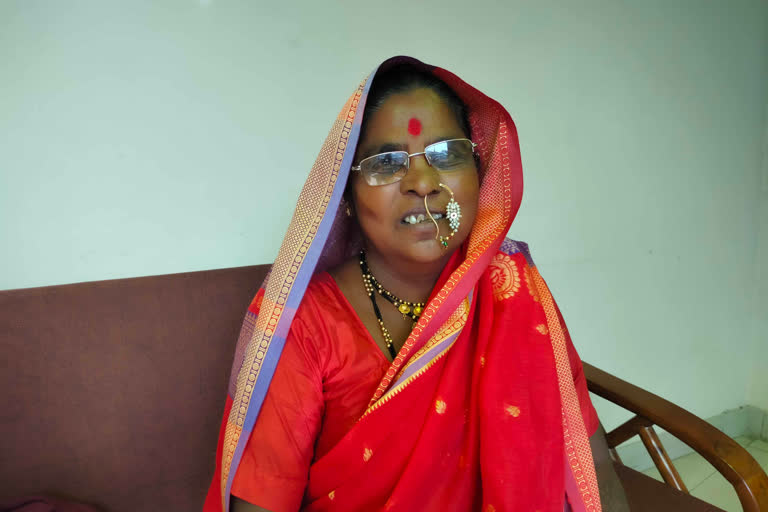New Delhi: Despite being illiterate and spending most of her life in extreme poverty, Padma Shri Rahibai Popere has set an inspiring example before the nation. Popularly known as 'Beej Mata' for her contribution to the conservation of indigenous seeds, the 72-year-old Rahibai spoke to ETV Bharat about her journey from a poor rural girl to a renowned awardee.
Rahibai was in the Komble village of the Akole tribal block in the Ahmednagar district of Maharashtra. Originally from the Mahadev Koli tribal community, she was born into a poor and crowded family with five siblings. Being a woman born in extreme poverty in a farmer's family, she was never sent to school. Most of her childhood was spent farming alongside her parents.
At the mere age of just 12, Rahibai got married to Soma, who was also a farmer from her community in the same village. She continued farming with her husband after getting married, and as time passed, gained commendable expertise in the cultivation of various crops. Even as she aced at what she was doing, Rahibai spent 40 years of her life in her small hut housed in a quaint village located in the remote hilly areas, far away from the opportunities that could have helped her unlock her potential sooner.
Despite not having access to any sort of education, Rahibai had a sharp mind and a keen eye. As she was going about her farming, she at some point realised that the use of chemical fertilizers increases the production of crops, but the cost of farming also increases parallelly. Moreover, the consumption of crops grown with chemical fertilizers also harms health, resulting in high expenditure on medical care. Though she was not aware of the concept of organic farming, which had by then just started budding as an urban concept, Rahibai started growing crops organically in what she called her 'kitchen garden'.
Also read: Bengal 'padman' bats for sanitary pads supply thru ration shops
Her approach was well received by other farmers in the village, too, and the practice became more frequent within her community. She was soon recognised by the BAIF Development Research Foundation, an NGO, based in the Urali Kanchan area in Pune. The farmers in her village were then given assistance from the Tribal Development Project of General Mills, implemented by BAIF.
As the initiative moved further, Rahibai helped the organisation in collecting seeds of various native species of vegetables and crops. She soon learned professional and highly effective farming methods for the cultivation of indigenous varieties of vegetables and crops with organic methods. She also worked to preserve hundreds of indigenous varieties and encourage farmers to grow traditional crops.
Moreover, the woman also developed an action plan to create awareness among young students about the importance of local and indigenous varieties of crops for a healthy life. She also received considerable support from development organisations such as BAIF, government departments, and research institutions to propagate her plan.
Through self-help groups, she managed to grow more than 17 indigenous crops on 50 acres of land. She became the star face of this initiative about two decades ago and has today managed to connect several farmers from rural and remote areas to promote organic farming. She says seed banks should be as ubiquitous as commercial banks in rural areas.
A source of inspiration for thousands of small and poor farmers and women alike, Rahibai was bestowed with the prestigious Padma Shri award in 2020. She also received recognition in the mainstream media and was listed in BBC's '100 Women' series in 2018. Pursuing her relentless passion for her work, Rahibai still continues to work equally hard for the cause even in her 70s.



